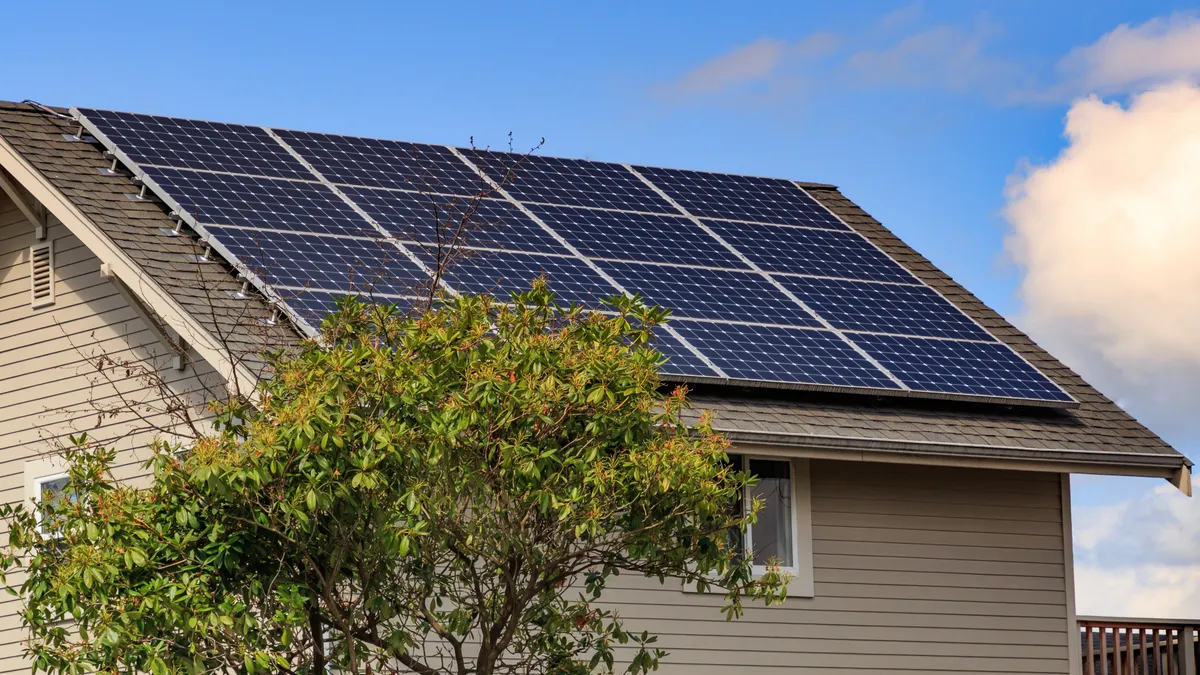Dive Brief:
-
Georgia Power has collected $1.87 billion beyond the revenue level approved by the Georgia Public Service Commission since 2011, according to Oct. 20 testimony from solar industry groups.
-
The earnings overage suggests that Georgia Power’s request to close or alter multiple residential tariffs in order to recover $1.4 million in costs from households with rooftop solar is unnecessary, according to Kevin Lucas, Solar Energy Industries Association senior director of utility regulation and policy.
-
SEIA is calling for additional oversight by the Georgia PSC to put an end to excessive billing by Georgia Power.
Dive Insight:
Solar industry groups are opposing a request by Georgia Power to revise several residential tariffs after discovering what they’ve characterized as a “massive over-collection of revenue” by the utility.
Annual reports by Georgia Power to the Georgia PSC indicate that the utility has collected $1.87 billion beyond the target revenue established by the state commission, according to testimony filed Thursday by SEIA, the Georgia Solar Energy Industries Association, and Vote Solar. Those earnings, Lucas said, clearly exceed the $1.4 million in costs Georgia Power says a net-metering style tariff has failed to collect.
Lucas said the overages appear to be the result of an earnings “band” allowed by the PSC, which has a policy of allowing the company to collect revenue beyond the level set by the commission. This band or range theoretically requires the utility to eat some losses in lean years while harvesting some additional earnings in plentiful years, but according to Lucas, the company’s numbers suggest Georgia Power has overshot the earnings target by wide margins since 2011.
After a certain threshold, the commission rules require Georgia Power to return portions of the excess earnings to customers. The utility has met this threshold and refunded customers on their power bills six times in the past 11 years, Lucas said.
This finding would seem to render the company’s request for rate increases and $1.4 million in cost recovery moot, Lucas continued. If increases were approved in, say, 2020, he said, they merely would have resulted in excess earnings being returned to customers under the Georgia PCS’s current rules.
“Given that the company has consistently over-earned, that $1.4 million might not be a cost the company bears. It might just reduce the excess revenue they’re already collecting,” Lucas said.
SEIA also noted that the over-collection appears to have peaked in 2020 and 2021. More than 131,000 Georgia Power customers had their power disconnected during this same timeframe due to the Covid-19 pandemic, according to SEIA.
Georgia Power did not respond to multiple requests for comment on these allegations.














